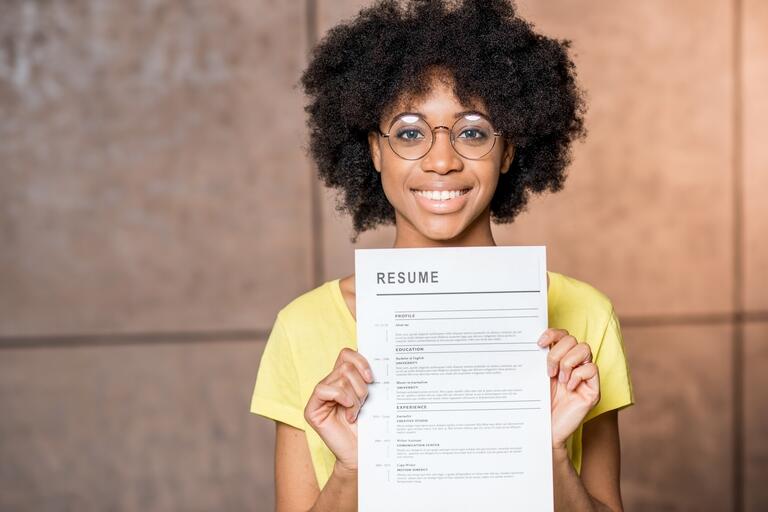Writing Your First Resume

While making your first-ever resume draft, it can be difficult to fill one whole page with work experience. As a high school or college student, you may not have much professional experience, but that doesn’t mean you should leave blank space in your resume. There are plenty of alternative methods to advertise yourself as a strong candidate.
Tailor Your Resume to Fit Your Needs
First, you should choose a resume format that is advantageous to having less experience. A professional summary and contact information are valuable things to include on a resume that take up some space. Visually unique design features don’t tend to add value, but it depends on the industry you are applying in. There is a fine line between avoiding blank space and having obvious filler in your resume.
Make the most of the experiences you do have by thoroughly describing your responsibilities in prior positions. Use strong, active language to elaborate in bullet points and quantify tasks as often as possible to demonstrate definitive results made by your actions. For example, turning “filed invoice paperwork” into “Managed and filed over 1,000 customer invoices for accounting purposes.” The second option shows purpose as well as a quantifiable result of your effort. You can also expand on your degree program by listing relevant courses you’ve completed, in addition to any academic scholarship awards.
Add Unique and Relevant Experiences
Often when filling out the work experience section of a resume, people only put “corporate” jobs. But you can show your work ethic and initiative by adding side hustles like babysitting, mowing lawns, shoveling snow, and tutoring. You are effectively running and marketing a small business to gain and maintain a base of loyal clients. Unpaid work experience including student organizations and volunteer work can also fall under experience if you think it would be beneficial to describe the activities performed in those capacities. Here are some additional ideas to help you stand out:
- Honors and awards.
- Club activities, sports, and international experiences.
- Research projects and presentations.
- Skills like using social media, public speaking, video or photo editing.
- Languages you speak.
Programs you understand such as Microsoft Office, Python coding language, or QuickBooks.
Your Resume Grows with You
If you still aren’t confident even with these added tips and tricks, try going to career fairs or asking for informational meetings with companies or organizations that interest you. That way you can make a good impression prior to even handing your resume over. If there’s a company that doesn’t have a job opening that’s right for you yet, ask what they are looking for in a candidate and build your resume around their advice. As you continue to interview, listen to what hiring managers pay the most positive attention to. A unique skill or experience could be what sets you apart from other candidates. Before you remove something from your resume on the grounds of it being unrelated to your current career pursuits, evaluate if it shows variety that isn’t otherwise represented.
Your resume is going to change a lot from your first draft. By being creative and thoughtful, you will find more experiences to include and improve in describing your skillset. If you’re looking to add to your resume, there’s no time like the present! Joining a club or taking an online course are easily accessible opportunities for career development.
Sources:
https://www.indeed.com/career-advice/resumes-cover-letters/how-to-make-a-resume-for-your-first-job